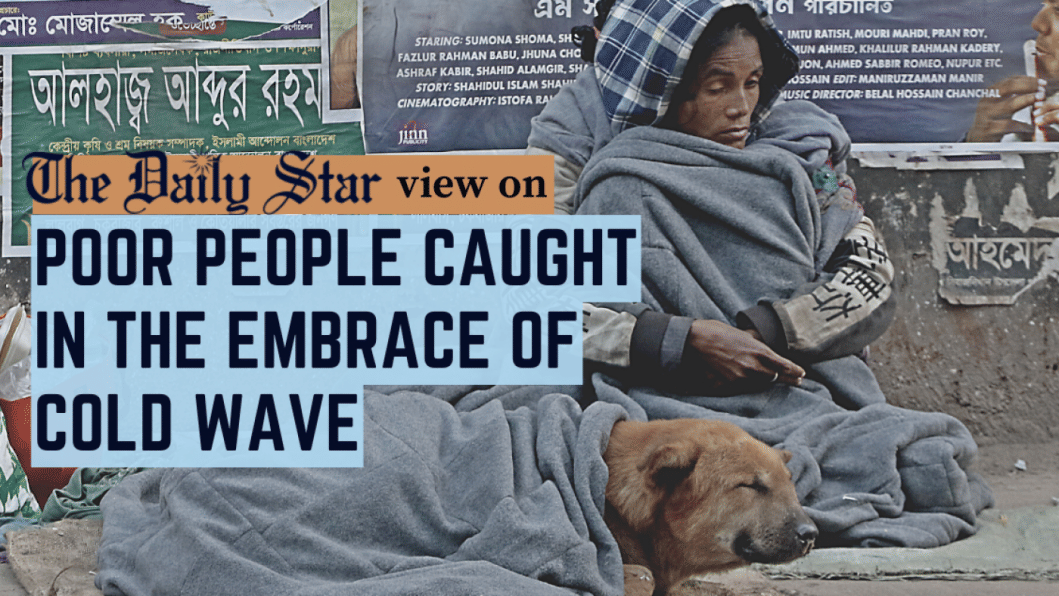Predictable winter woes for the homeless

A heart-breaking account by The Daily Star Bangla, of the misery that homeless people in Dhaka's streets have been facing during this winter, should be a wakeup call for the government and society in general. It gives a glimpse of how these individuals – who, it bears repeating, are citizens of this country – are deprived of such basic amenities as a roof over their heads, adequate food, warm clothes and blankets. Attached with the report is a photograph of a person literally sleeping inside a thin plastic bag to stave off the cold, epitomising the level of deprivation that certain sections of the population face.
Those interviewed revealed that they simply could not afford any kind of housing; they often went to bed hungry and could not sleep because they did not have warm blankets. A mother and daughter shivering in the cold said that they sold flowers and lived on the streets, saving money to send back to a son who stays at a madrasa. Caught in the cold embrace of winter was also a teenage boy who ran away from home after his father had remarried, and now has no one to call family in this unkind city.
Temperatures in Dhaka have fallen as low as 11.5 degrees Celsius, with winds making it seem even colder. Outside the city, temperatures drop even further making life hard for poor people, especially infants and the elderly. On Saturday, Chuadanga recorded the lowest temperature in the country at 8.4 degrees Celsius. Other northern districts have been facing a similar situation over the past few days.
Meanwhile, cold-related diseases such as flu, bronchitis, pneumonia and diarrhoea have seen a sharp rise. For those on the streets, exposed to the elements, the chances of getting seriously ill are very high, especially in major cities swathed in constant dust from the many construction projects, big or small.
All these scenarios have been predictable, however. With proper planning by the authorities, cold-related effects on the poor could be reduced. Unfortunately, there has been hardly any meaningful action. Why haven't we, for instance, seen the usual drives to distribute warm clothes and blankets to the needy? Special funds must be allocated to help the homeless, who are most vulnerable and concentrated in the cities. Organisations and individuals should make a coordinated effort to initiate such drives. Along with warm clothes, these people need nutritious food. Soup kitchens should be set up by the city corporations to provide free meals to the homeless. The state cannot only depend on private initiatives to help the urban poor; it must have a comprehensive plan that will meet their immediate needs, while addressing the more long-term issue of homelessness through low-cost housing, employment, and accessible health care.
As a society, each one of us has a responsibility to those less fortunate, who live without even the bare minimum of needs met. Right now, the government and public must join hands in making sure these people stay warm and don't go to bed hungry.

 For all latest news, follow The Daily Star's Google News channel.
For all latest news, follow The Daily Star's Google News channel. 





Comments